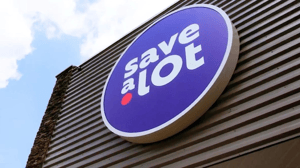- Independents / Regional Grocers
- Grocery Trends & Data
- Legislation & Regulatory News
- Mergers & Acquisitions
- Grocery Operations
5 hurdles for FTC in potential Kroger-Albertsons merger challenge5 hurdles for FTC in potential Kroger-Albertsons merger challenge
Fresh Perspectives: Legal think tank International Center for Law & Economics contends an attempt by regulators to block the deal would be far from certain.


“Fresh Perspectives” is a new Winsight Grocery Business column from Executive Editor Russell Redman, who will share insights on news, trends, people, issues and events in and around the grocery industry.
Even amid widespread opposition—by consumer watchdogs, organized labor, government officials and community groups—a regulatory attempt to stop the Kroger-Albertsons merger would be a steep hill to climb.
Accurately defining today’s grocery retail marketplace stands as one of five hurdles for the Federal Trade Commission (FTC) to surmount if it attempts to block the $24.6 billion deal, according to the International Center for Law & Economics (ICLE), a nonprofit, nonpartisan research group.
In a brief released Thursday, titled “Five Problems with a Potential FTC Challenge to the Kroger-Albertsons Merger,” Portland, Oregon-based ICLE said an FTC effort to halt the transaction would collide with the law “as it is currently enforced by U.S. courts.” Such a move would be unlikely to prevail in court because of failure to account for “dramatic changes in the retail food and grocery landscape,” the viability of store divestitures as an antitrust remedy “routinely accepted by courts,” and “speculative” claims about harm to the labor market and purchasing power, the group explained.
What’s more, the 19-page brief said the Kroger-Albertsons merger likely will be challenged, citing an “increasingly aggressive enforcement stance” against mergers and acquisitions by the FTC, including new merger guidelines proposed last week.
ICLE also points to the merging parties’ “apparent willingness to litigate the case,” which it said “makes the likelihood of a protracted legal battle high.” Indeed, back in May, The Kroger Co. Chairman and CEO Rodney McMullen said in a Bloomberg interview that his company—slated to acquire Albertsons Cos. under the mega-merger—was willing to pursue litigation if the deal is nixed by regulators.
The Kroger-Albertsons merger agreement, announced in mid-October, would combine the nation’s first- and second-largest supermarket retailers into a company with annual revenue of about $210 billion and 4,996 stores, 66 distribution centers, 52 manufacturing plants, 3,972 pharmacies, 2,015 fuel centers and 710,000 workers in 48 states and D.C. Expected by the retailers to close in early 2024, the transaction would mark the largest U.S. supermarket merger ever.
“The upshot is that the food and grocery industry is arguably as competitive as it has ever been,” ICLE brief authors Brian Albrecht, Dirk Auer, Eric Fruits and Geoffrey Manne wrote. “Unfortunately, recent developments suggest the FTC may well ignore or dismiss the economic realities of this rapid transformation of the food and grocery industry, substituting instead the outdated approach to market definition and industry concentration signaled by the draft merger guidelines.”

Under the merger deal, The Kroger Co. plans to acquire Albertsons Cos. The retailers expect the transaction to close in early 2024. / Photo: Shutterstock.
Five problems for a possible FTC thumbs-down to the Kroger-Albertsons deal, ICLE said, include the following:
• Food/grocery product market broader than supermarkets
In large part, the likelihood of the FTC (and other regulators) approving the Kroger-Albertsons merger depends on how broadly or narrowly they define the grocery retail market.
Would regulators weigh the potential competitive impact of a Kroger-Albertsons combination on just supermarket chains and independent grocery stores? Or would the market share of e-tail giant Amazon, limited-assortment discount grocer Aldi, and mass merchants like Walmart/Sam’s Club, Costco Wholesale, Target, Dollar General, BJ’s Wholesale Club et al—not to mention delivery providers like Instacart—be taken into account as well?
“Because of recent changes in market dynamics, it no longer makes sense to limit the relevant market to supermarkets alone,” ICLE stated in the brief. “Rather, consumer behavior in the face of omnipresent wholesale clubs, e-commerce, and local delivery platforms significantly constrains supermarkets’ pricing decisions.”
ICLE noted that recent FTC consent orders for grocery retail M&As have generally restricted the the food and grocery product market to brick-and-mortar chain and independent supermarkets and “hypermarkets” like Walmart Supercenters, yet excluded warehouse clubs, online retailers and grocers, and e-commerce players.
“This is based on an assertion that the relevant market includes only those retail formats in which a consumer can purchase nearly all of a household’s weekly food and grocery needs from a single stop, at a single retailer, in the shopper’s neighborhood,” ICLE explained. “This is, however, no longer how most of today’s consumers shop. Instead, shoppers purchase different bundles of groceries from multiple sources, often simultaneously. This pattern has substantial implications for supermarkets’ competitive environment.”
• FTC’s merger enforcement policy on collision course with the law
The Federal Trade Commission and Department of Justice (DOJ) on July 19 proposed new merger guidelines as part of a push by the Biden administration to boost antitrust enforcement. The draft guidelines are subject to a 60-day comment period ending in mid-September.
Guidelines potentially impacting the Kroger-Albertsons deal focus on promoting competition (including among product buyers) while thwarting market over-concentration, elimination of new market players, efforts to entrench or extend a dominant market position, and trends toward industry consolidation.
“The recently published FTC-DOJ draft merger guidelines are a particularly notable backdrop for the KrogerAlbertsons merger, leading many commentators to expect the FTC to take a hardline stance on the deal. Merger case law, however, has not changed much in recent years. Given the merging parties’ apparent willingness to litigate the case, if necessary, the likelihood of a protracted legal battle seems high,” according to the ICLE report. Besides the “publication of aggressive revised merger guidelines,” the brief cited “a string of cases brought to block seemingly benign mergers, process revisions burdening even unproblematic mergers, and FTC leadership’s contentious and expansive interpretation of the merger laws.”
“At least at first sight, any case against the merger would appear to be largely built on sand,” ICLE said, “and the commission’s chances of succeeding in court appear slim.”
• Divestitures historically have been appropriate and adequate remedy
Kroger and Albertsons have estimated they would need to divest 100 to 375 stores to clear the antitrust review by federal and state regulators. Their merger pact also includes a ceiling of 650 store divestitures, at which point the two retailers could reassess the deal. Stores would be divested through direct sales to other operators and/or via a new spinoff company called SpinCo.
“The FTC historically has allowed most supermarket transactions to proceed with divestitures,” ICLE observed, naming Royal Ahold-Delhaize Group (81 stores divested), Albertsons-Safeway (168 stores) and Price Chopper/Market 32-Tops Friendly Markets (12 stores). The brief also cited numerous examples of strong and/or expanding grocery operators acquiring divested stores. “The extent of the remedies sought depends on the extent of post-merger competition in the relevant markets, as well as the likelihood of entry by additional competitors.”
Kroger-Albertsons merger opponents have cited the bankruptcy of Pacific Northwest chain Haggen as an example that store divestitures are a questionable antitrust remedy. But ICLE noted the uniqueness of the Haggen situation. The 14-unit chain purchased 146 stores in five states being divested in the 2014 Albertsons-Safeway merger deal—a more than tenfold expansion of its store base. Unsurprisingly, Haggen was unable to digest the acquisition and ended up going bankrupt, with Albertsons later repurchasing 33 stores it had divested.
“Despite a long history of divestitures serving as an appropriate and adequate remedy in supermarket mergers, some point to the Albertsons-Safeway merger divestitures to Haggen as evidence that divestitures are no longer an appropriate remedy. But several factors idiosyncratic to Haggen and its acquisition strategy led to the failure of that divestiture, and it does not properly stand for the claim that all supermarket divestitures are doomed,” ICLE’s brief said. “Any divestures associated with the Kroger-Albertsons merger should learn from the Haggen experience, rather than view it as justification to reject reasonable divestiture options that have worked for other mergers.”
• Labor monopsony concerns unlikely to hold up in court
ICLE said in the brief that, more so than in earlier retail mergers, Kroger-Albertsons deal opponents have argued the combination’s potential to create monopsony power in labor markets. Also, the FTC’s new draft merger guidelines included one on mergers that “May Substantially Lessen Competition for Workers or Other Sellers.” But the think tank posited that described the retail sector’s labor market as “extremely competitive” and noted that workers have a “wide range of alternative employment options—both in and out of the retail sector.”
“While, in theory, antitrust harms can occur in labor markets, just as in product markets, proving that harm is more difficult,” the brief stated. “An important fact about this merger is that both companies have many unionized workers. Around two-thirds of Kroger employees and a majority of Albertsons employees are part of the United Food and Commercial Workers International union, representing 1.3 million members. Even if the merger would increase labor monopsony power in the absence of unions, the FTC will have to acknowledge the reality of the unions’ own bargaining power.”
Kroger, too, has said it expects to invest $1 billion to boost associate wages and benefits after the transaction closes. In March, the retailer also announced plans to invest over $770 million in associates for 2023, including to raise average hourly wages and improve health care options, among other items.
• Alleged ‘waterbed effect’ not borne out by evidence
The Kroger-Albertsons agreement has been criticized as well for potentially exacerbating the “waterbed effect,” in which the market’s largest buyers use their monopsony power in dealing with food and grocery suppliers to the detriment of smaller retailers and vendors, according to ICLE.
“But these arguments are far from compelling. Much of the discussion of the waterbed effect focuses on harm to competing retailers, rather than consumers,” the brief said. “This is not the harm that U.S. antitrust law seeks to prevent. It is thus not surprising that at least one U.S. court has rejected waterbed effect claims on grounds that there was no harm to consumers.”
The National Grocers Association (NGA), for one, has called on the FTC to crack down on anticompetitive behavior from “power buyers” such as Walmart, Amazon, Costco, Target, Dollar General and big supermarket chains. NGA said these retailers use their scale to command more favorable supply terms, lower pricing, special product package sizes and first call on high-demand items, leaving independent grocers at a marked disadvantage in supply and pricing. According to the association, a merger of Kroger and Albertsons likely would mean more of the same.
While Kroger and Albertsons still expect an early 2024 completion for the merger, industry observers have said antitrust approval likely will take longer for such a large transaction and could last as long as two years.
“Attempting to block this transaction would go against the analytical framework the FTC has historically used to evaluate similar transactions, as well as the agency’s historical precedent of accepting divestures as a remedy to address localized problems where they arise,” ICLE said in the brief. “Such breaks with the past sometimes happen; our understanding of the law and economics evolves. Unfortunately, these likely breaks from tradition would reflect a failure to consider relevant and significant changes in how consumers shop for food and groceries in today’s world.”
About the Author
You May Also Like






